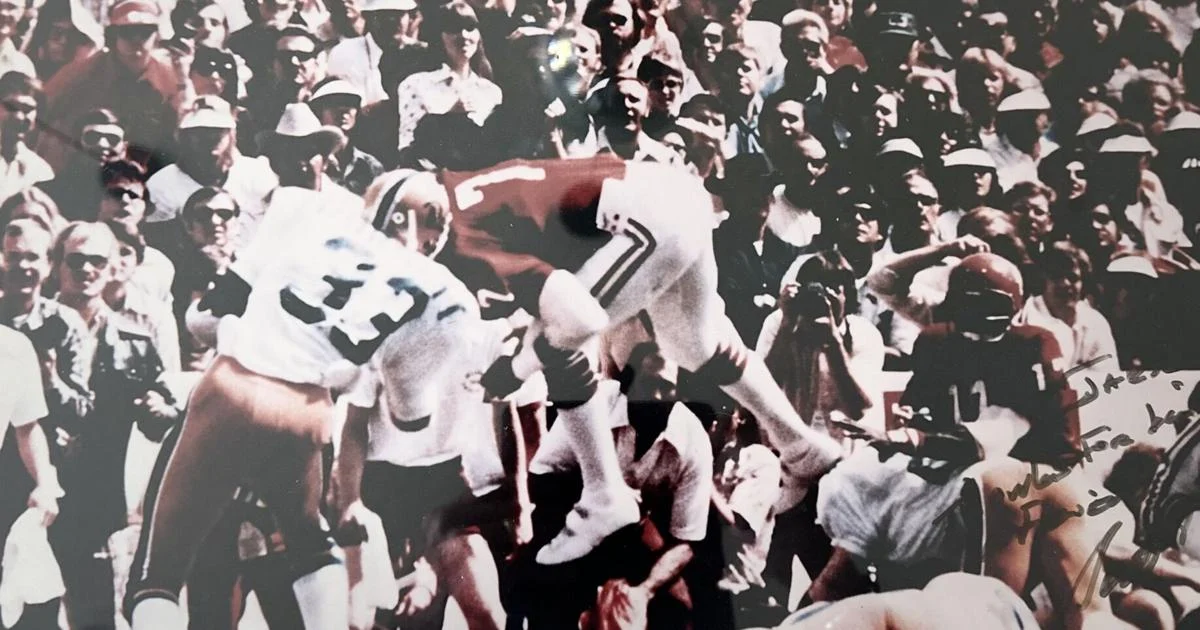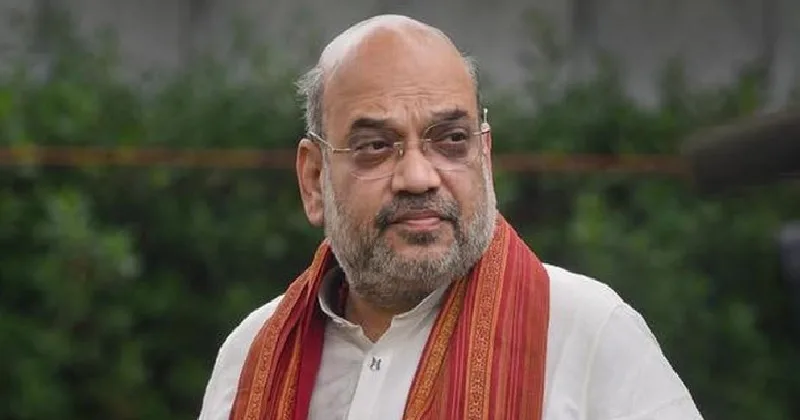
Berry Tramel
Tulsa World Sports Columnist
Get email notifications on {{subject}} daily!
Your notification has been saved.
There was a problem saving your notification.
{{description}}
Email notifications are only sent once a day, and only if there are new matching items.
Followed notifications
Please log in to use this feature
Log In
Don’t have an account? Sign Up Today
When Scott Hill phones his old football coach, modern technology allows Barry Switzer to know who’s calling. So, Switzer answers the same way every time.
“Scotty Hill knocks the s*** out of Tony Dorsett,” Switzer will say, with a radio voice.
Just the other day at Crossings Community Church in Oklahoma City, where Hill is a head usher, a new volunteer joined the ranks. He came over to Hill and asked, “Are you Scotty Hill? I saw you hit Tony Dorsett.”
Those ranks are thinning. It’s been 50 years — fifty years! — come Saturday since Hill, a strong safety on Switzer’s great OU teams of the 1970s, made the most stunning defensive play in Sooner history.
In an Oklahoma-Pittsburgh game on September 20, 1975, a matchup of programs that would win the next two national championships, Hill hurdled a Pitt blocker, stayed airborne longer than the Wright Brothers at Kitty Hawk, and hit Dorsett broadside. Solid. The Panther tailback went down like a dropped sack of Quikrete, and the 70,286 fans looking down on Owen Field knew instantly what they had seen. A play for the ages.
Mike Brooks, now the official OU statistical historian, then was a 22-year-old fan. Brooks still remembers where he sat for that Pitt game. North end zone, section 21, row 43.
“I can recall it like it was last Saturday,” Brooks said. “A flying leap over a Pittsburgh blocker, and Dorsett crumbling like the walls of Jericho. The crowd roar was deafening.”
Dorsett, of course, went on to win the Heisman Trophy and make the Pro Football Hall of Fame as a Dallas Cowboys tailback. Back in 2014, Dorsett went public with D Magazine over his battle with degenerative brain disease. He recalled the play.
“He hit me like a torpedo,” Dorsett said.
Dorsett staggered backwards and sideways. He landed on his butt, then teetered onto his back, his arms going above his head. Dorsett said he remained conscious, though some over the years have their doubts.
“When I went to the sidelines, I said, ‘Coach, it’s going to be a long day,’” Dorsett told D Magazine. “They droppin’ ‘em out of the sky now.”
The Original Superman
Hill did indeed fly.
This was the 20th-century version of Roy Williams’ Superman play. The all-American safety jumped over Texas blocking back Brett Robin, hit quarterback Chris Simms as he attempted to pass and the ball fell into the hands of linebacker Teddy Lehman for a touchdown, cementing OU’s 14-3 Red River victory in 2001.
Which play you prefer probably depends on your generation. I was 14 in 1975, sitting in the upper deck, section 109, row 43 for Hill. In 2001, in my 23rd year of covering college football, I was kneeling just beyond the end line of the Texas end zone, maybe 25 feet from the Williams/Simms collision.
I’m a child of the ‘70s. My wonder drifts more to Hill’s aerial assault. I’m not sure I’ve ever seen anything like it.
Second quarter, still a close game in what became a 46-10 OU rout. Pitt faced 4th-and-1 at the OU 34-yard line.
The play was a sweep left, off an option. Dorsett was led by Pitt fullback Bob Hutton, who tried to block Hill low. Hill launched himself over Hutton, turned his body like a twisting gymnast and popped Dorsett with the entire force of Hill’s left side. It looked like choreographed antics from professional wrestling. But it was all so real.
Hill remembers the reactions of teammates. “The heads of the guys on the sideline just turning to each other,” Hill said “‘Boy, how did that happen?’ Maybe one of the better feelings I’ve ever had in my entire life.”
Hill’s defensive backfield coach was Bobby Proctor, a 19-year OU assistant coach (1973-91) and about as tough a personality as ever inhabited the Sooner sideline. As Hill trotted off the field, he was welcomed with a Proctor hug.
“He just didn’t do that,” Hill said. “Every time I watch that clip, you can see Bobby on the sideline. He raises his arm and he just shakes his head.”
Another Switzer assistant, Bill Shimek, told Hill he had just made the front line of the highlight film.
Which is true, but it was a different time. The internet didn’t exist. Neither did ESPN. Instant, nationwide distribution of the play was impossible. The game was not even televised; OU’s NCAA probation prevented it.
So Hill’s acclaim came in spurts.
The New York Times’ Gordon White didn’t cover the game, but he led his college football notebook the following day with the Dorsett/Joe Washington showdown. He didn’t mention Scott Hill’s hit. It’s possible he hadn’t seen it.
Hill a leaper
Hill was known as a hard-hitting and big-play safety, but in a prior life, he was a blue-chip high school quarterback at L.D. Bell in the Fort Worth suburb of Hurst. As a redshirt freshman in 1973, Hill was Steve Davis’ backup quarterback. With Davis solidified as the starting QB for two more years, Switzer’s staff moved Hill to safety. Great move.
The late Jakie Sandefer, an OU halfback under Bud Wilkinson and a long-time booster under later administrations, once told me that the way Hill played football, “you could take 25 like Scotty and run Castro out of Cuba.”
Hill’s athletic ability was underrated. Joe Washington wasn’t the only hurdler on those Camelot Switzer teams.
Switzer said Hill would leap his teammates when they tried to block him low in practice, until they got wise and rose up.
“Scotty used to go over them,” Switzer said. “They got to where he knew he was going to do it. (Then) he wouldn’t do that against us. Other teams, he was like Little Joe. He just jumps over ‘em. Hurdles their ass.”
So Dorsett was quite the unsuspecting victim.
And it was a different time in terms of rules. Targeting still was decades away. Player safety was of meager concern. Of course, Hill didn’t lead with his head, he led with the left side of his body, and he didn’t hit Dorsett in the head. This was a body shot.
Would modern officiating have flagged Hill for unnecessary roughness?
“It’d be real close,” Hill said. “Leaving your feet…”
Hill considers himself lucky. Leaving your feet and still getting a direct hit is not normal. Not in 1975. Not in 2025. That’s another reason Dorsett wasn’t expecting Hill’s arrival.
“I just don’t think he expected me to react,” Hill said. “I jumped over one of his guys. He probably was expecting that guy to make a block.
“Who knows what kind of instincts running backs have, but I played quarterback enough, you get a glimpse, you make a mental decision. I just can imagine, quick as his instincts were, I was going to get blocked. Whether inside or outside, no doubt I caught him off guard.”
Dorsett the star
Hill says the defensive preparation that week from coordinator Larry Lacewell dwelled on Dorsett.
“That was just the key,” Hill said. “Shutting him down, slowing him down, not letting him get going.”
Mission accomplished. Dorsett rushed 12 times for 17 yards. The Sooners won in a walk. A walk and a most memorable flyover from a certain safety.
“He made the hit as much as I did, with all the accolades he garnered,” Hill said.
Dorsett, then known as Tony DOORset, not the dorSETT pronunciation used in the NFL, already was a college football superstar in 1975. He had rushed for 1,586 yards as a 1973 freshman, then followed that with another 1,000-yard season. Pitt football was staging a revival under Johnny Majors; before his 1973 arrival, the Panthers had just one winning season the previous 12 years.
In 1976, Dorsett would win the Heisman and Pitt would win the national title. Washington was a 1975 senior, had finished third in the 1974 Heisman voting and among the favorites in ‘75. But Dorsett was every bit the star that Washington was.
In 1977, Dorsett was the second overall pick in the NFL Draft, to the Cowboys. Dorsett rushed for 1,004 yards and 12 touchdowns as a rookie, then rushed for 222 yards and four touchdowns in the playoffs, as the Cowboys cruised to the Super Bowl championship.
But he never forgot being hit by Scott Hill.
They’ve met once, at a lunch in Dallas arranged by a mutual friend about three decades ago.
“You know,” Dorsett told Hill, “I never could remember your name. But I always remember Number 7.”
I interviewed Dorsett in 2007.
“That was a good hit,” Dorsett said. “I think Scotty surprised both of us when he went airborne.”
Dorsett turned jokester.
“Scott Hill? You listening? I made you a lot of money. OK, man?” Dorsett said. “You know what? Oklahoma owes me a lot of money because of that hit. They need to grease my palms, man. They recruited a lot of players off that hit. Scott Hill has become a multi-millionaire off that hit.”
Hill didn’t make much money off that flying tackle, but he made a memory that has helped him connect with people for 50 years.
Years ago, Hill sent Dorsett an autographed picture of the hit, with the inscription: “Tony, Thank you for being an all-pro and an all-everything because you’ve given me a lifetime of recognition.”
But the thanks from Sooner fans go to Hill, who flew through the air, making a memory still going strong a half century later.
berry.tramel@tulsaworld.com
Be the first to know
Get local news delivered to your inbox!
* I understand and agree that registration on or use of this site constitutes agreement to its user agreement and privacy policy.
Berry Tramel
Tulsa World Sports Columnist
Get email notifications on {{subject}} daily!
Your notification has been saved.
There was a problem saving your notification.
{{description}}
Email notifications are only sent once a day, and only if there are new matching items.
Followed notifications
Please log in to use this feature
Log In
Don’t have an account? Sign Up Today



